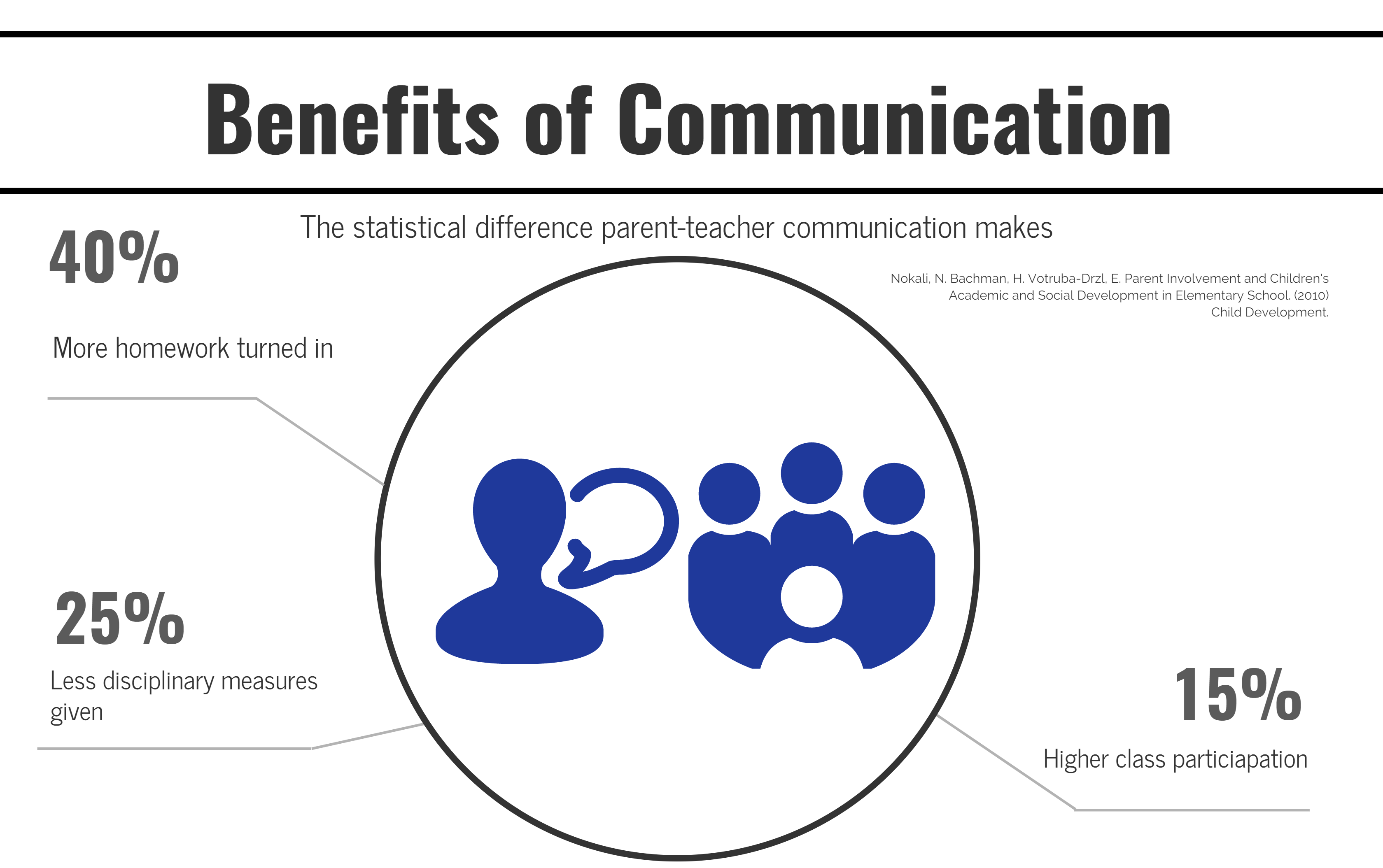The results of stronger school-to-parent communication show significant improvements and betterment of childhood outcomes. Research supports the premise that school-to-parent communication leads to higher parent involvement, promotes better social skills, decreases student behavioral issues, and improves student achievement. By bridging the communication gap between schools and parents, vast improvements in positive educational outcomes and achievement can be seen.
As Dougherty and Kraft (2013) explored, frequent school-to-parent communication immediately increased student engagement as measured by homework completion rates, on-task behavior, and class participation. Dougherty and Kraft found, on average, teacher-family communication increased the odds that students completed their homework by 40%, decreased instances in which teachers had to redirect students’ attention to the task at hand by 25%, and increased class participation rates by 15% (Dougherty & Kraft, 2013).
Furthermore, the Southwest Educational Development Laboratory released a report which summarized 51 studies on the topic of school-to-parent communication, and found that regardless of socioeconomic status, background, or race, students with involved parents were more likely to:
- Earn higher grades and test scores
- Enroll in higher-level programs
- Be promoted, pass their classes and earn credits
- Attend school regularly
- Have better social skills & show improved behavior
- Graduate and go on to postsecondary education

